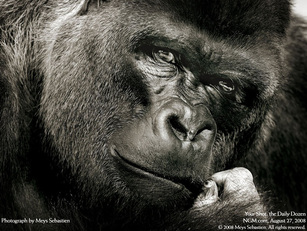Problem based learning (PBL) supports to the process of obtaining an education. According to video 1, receiving an education is different from going to school. Like said by one of my teachers, receiving an education is improving yourself as an individual for the greater good of society. Problem based learning does not follow the tradition methods of school. It does not require the regurgitation of facts to be thrown up in the teacher’s face. Problem based learning requires you to apply the facts you have learned to fix real life problems. I know this system of learning is effective because the medical school JABSOM (John A. Burns School of Medicine) uses PBLs as their curriculum. It helps the medical students prepare for what it will be like in the real medical field. In Patino’s class, we use the PBL system. The Standard 9 CER Question was an example of a PBL. Patino asked us to answer a question relating to a current problem in the Hawaiian community. I believe this question helped me convey my understanding for evolutionary theory. For example, the question I decided to answer was on GMO kalo. I had to apply all of my biology knowledge on evolutionary theory that I learned in Biology class and then use that knowledge to solve a relevant, current problem. When answering my question, I mentioned the mechanisms of evolution affecting the kalo (mostly artificial selection and mutation). I also talked about more specific things like how we need to help the kalo evolve now that it’s domesticated because it has lost the majority of its defense mechanisms. In conclusion, problem based learning helps students get a valuable education that will aid them in surviving in the real world.
In order to be science literate, you need to be constantly updating your mental database of knowledge. I believe this was my greatest struggle with being science literate. It’s hard enough to grasp the concepts of science in the first place, and when I finally get those facts down, it changes! Science is constantly changing and updating, so you really have to be on top of the ball when it comes to this field of study. However, despite my challenges with science literacy, I believe that over the course of this year, I have become a person of science literacy. According to Engrade, I did pretty well on the Standard 9 Exam. That means that I am able to use the facts that I learned in class and apply them to real life situations (such as the GMO kalo). I am proud of my accomplishment of being able to understand different science topics and being able to contribute helpful discussion about these topics. Science literacy is a skill that the general public should strive for and one that I am working towards mastering myself.
In order to be science literate, you need to be constantly updating your mental database of knowledge. I believe this was my greatest struggle with being science literate. It’s hard enough to grasp the concepts of science in the first place, and when I finally get those facts down, it changes! Science is constantly changing and updating, so you really have to be on top of the ball when it comes to this field of study. However, despite my challenges with science literacy, I believe that over the course of this year, I have become a person of science literacy. According to Engrade, I did pretty well on the Standard 9 Exam. That means that I am able to use the facts that I learned in class and apply them to real life situations (such as the GMO kalo). I am proud of my accomplishment of being able to understand different science topics and being able to contribute helpful discussion about these topics. Science literacy is a skill that the general public should strive for and one that I am working towards mastering myself.

 RSS Feed
RSS Feed